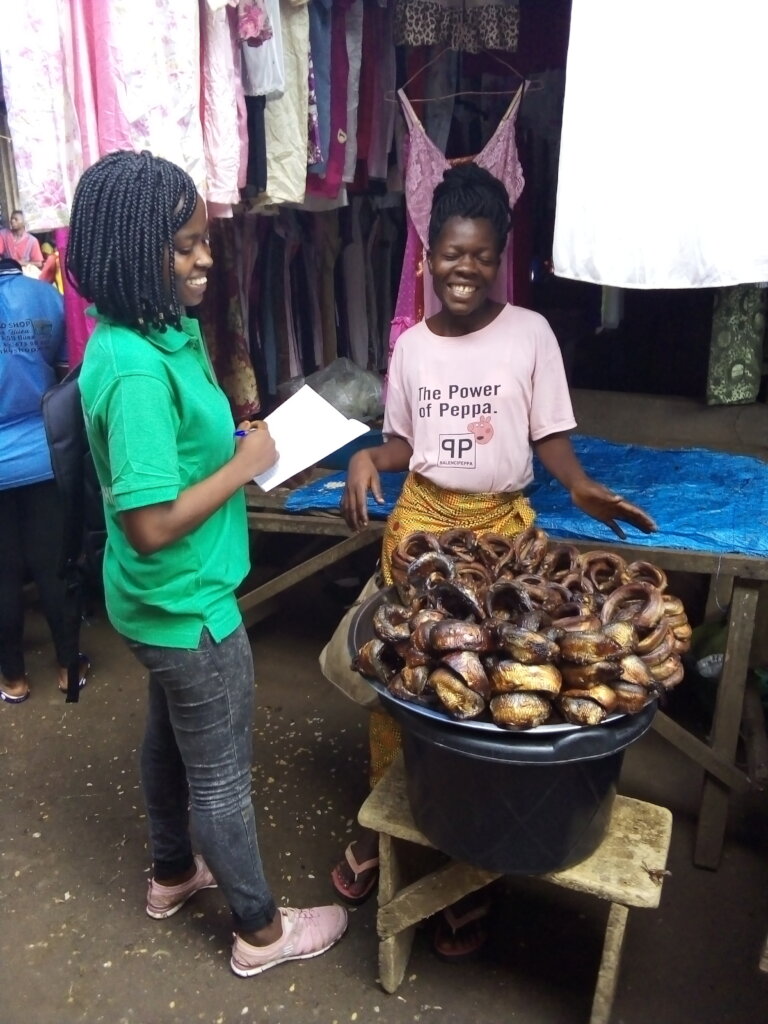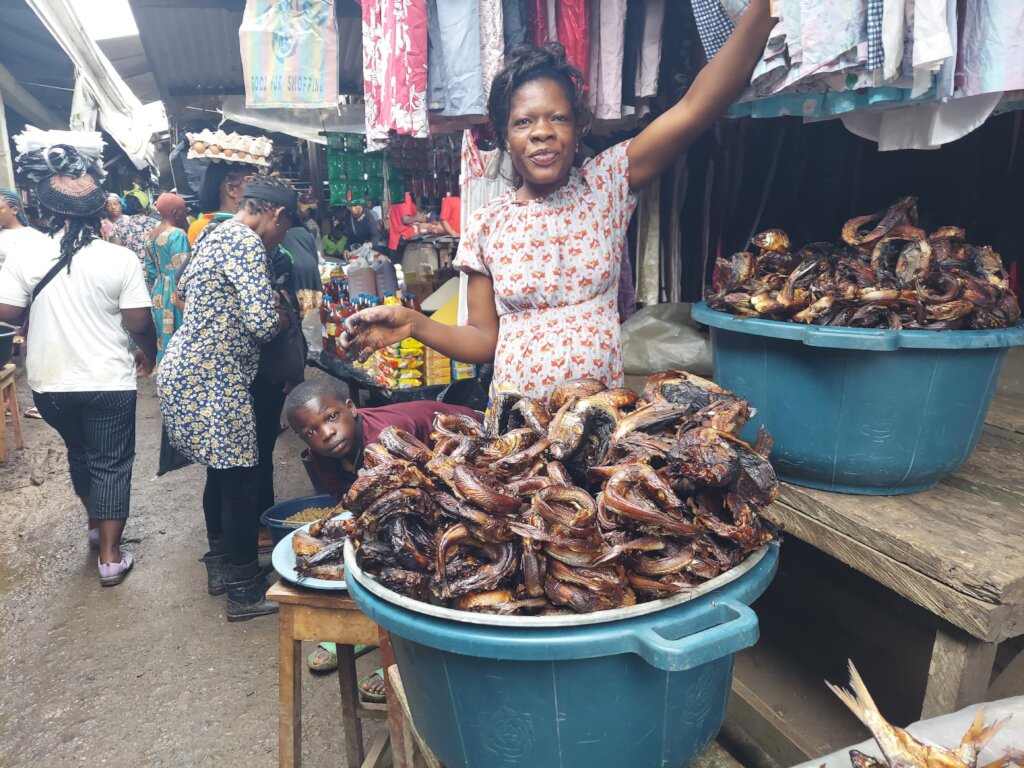By Angyikai Lizzette | project Leader
Emmaculate is a remarkable woman and one of the beneficiaries of Reachout NGO. Since 2019, she has transformed her life and the lives of her four children through sheer determination and the support she received. With a modest initial capital of just 12000 FRS ($19.83), she has built her business into a thriving enterprise, now boasting a capital of 150,000 FRS ($247.93). This success has allowed her family to enjoy a comfortable life, where three meals a day are a reality, and all her children attend good schools. Below is her Journey to Success.
At 29 years old, Immaculate was once a thriving business owner in Ekona, where she sold fried puff puff and beans alongside her husband. However, the onset of the crisis forced her to make difficult choices. With her husband fleeing to Douala for safety, she was left behind in an increasingly difficult situation. The insecurity and violence, particularly against young men, made it impossible for her to continue her business. Pregnant and with three children, she realized she needed to relocate to Muea for their safety.
Upon arriving in Muea, she initially lived with a friend and worked odd jobs such as farming and laundry to support her family. With resilience and resourcefulness, she saved up 5,000 FRS ($8.26) to start her venture selling boiled groundnuts. This small but significant step allowed her to care for her children during the challenging early days. As her business grew, Immaculate pivoted to selling smoked fish. With hard work and determination, she earned a weekly profit of 13,000 FRS ($21.49), allowing her to rent a modest home for 5,000 FRS ($8.26) a month.
In 2019, Immaculate caught the attention of Reachout NGO during one of their door-to-door identification initiatives. Recognizing her vulnerability, they selected her for training in bookkeeping, savings, and entrepreneurship. They provided her with expansion capital of 30,000 FRS ($49.59, which she invested back into her fish business. With her capital now at 45000 FRS ($74.38), her monthly profits soared to 30,000 FRS ($49.59). Emmaculate’s resourcefulness didn’t stop there. She participated in njangi—a weekly savings group—contributing 10,000 FRS ($16.53) each week. This initiative enabled her to manage her household expenses, pay her rent consistently, and ensure her children’s education.
She also rented farmland for 40,000 FRS ($66.12) yearly, where she cultivated vegetables to supplement her fish sales. Every Thursday and Sunday, she ventured to the market, dedicating the remaining days to her farm. Despite occasional setbacks, such as her children’s illnesses affecting her capital, Emmaculate's hard work and perseverance paid off. Her success and determination were recognized further when she received a second grant of 50,000 FRS ($ 82.64), boosting her capital to 90,000 FRS ($148.76) and allowing her to buy in bulk.
Today, she enjoys a monthly profit of 70,000FRS ($115.70), providing a stable income for her family. Emmaculate's story is one of resilience, reflecting her unwavering commitment to building a better future for her children, demonstrating the transformative power of support and hard work.
By Angyikai Lizzete | project leader
By Lenou Ines | Project-Leader
Project reports on GlobalGiving are posted directly to globalgiving.org by Project Leaders as they are completed, generally every 3-4 months. To protect the integrity of these documents, GlobalGiving does not alter them; therefore you may find some language or formatting issues.
If you donate to this project or have donated to this project, you can recieve an email when this project posts a report. You can also subscribe for reports without donating.
Support this important cause by creating a personalized fundraising page.
Start a Fundraiser
